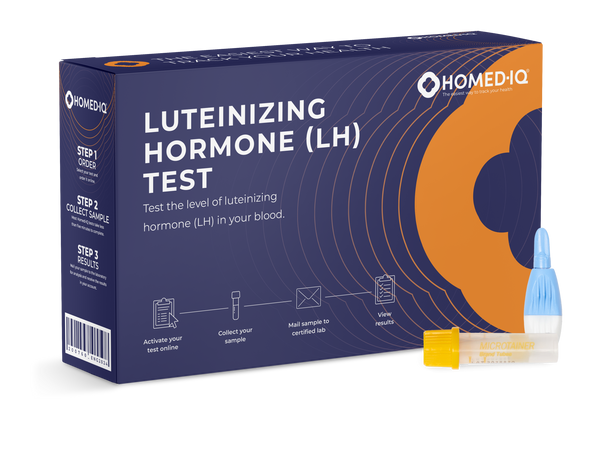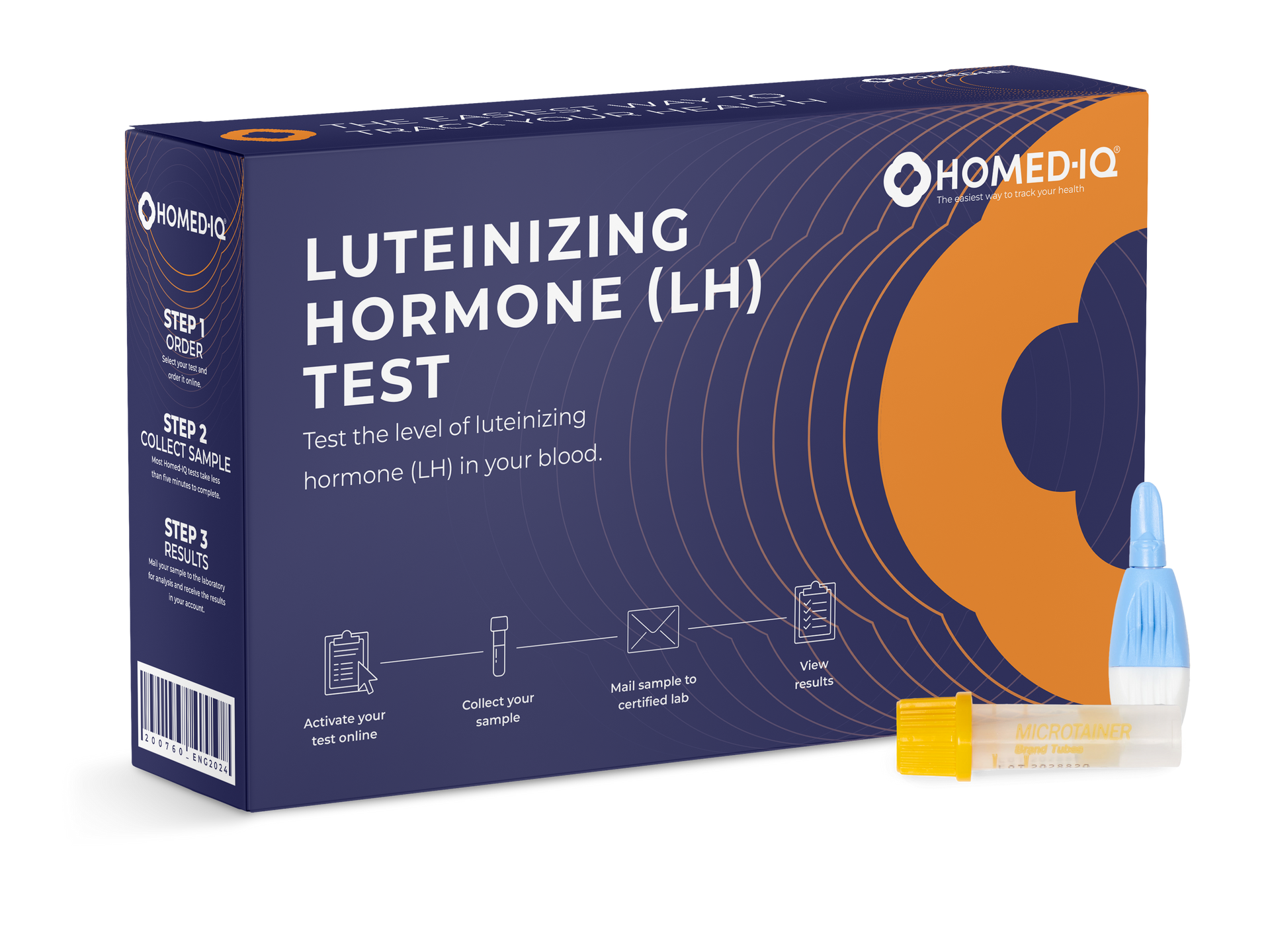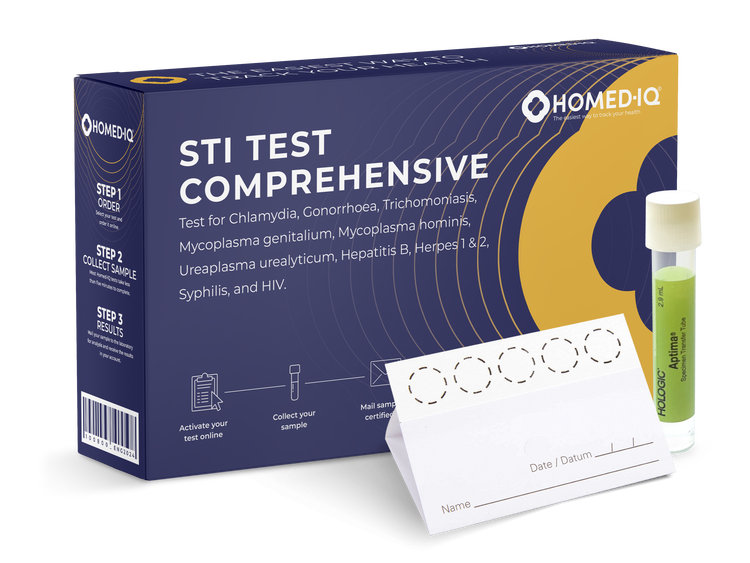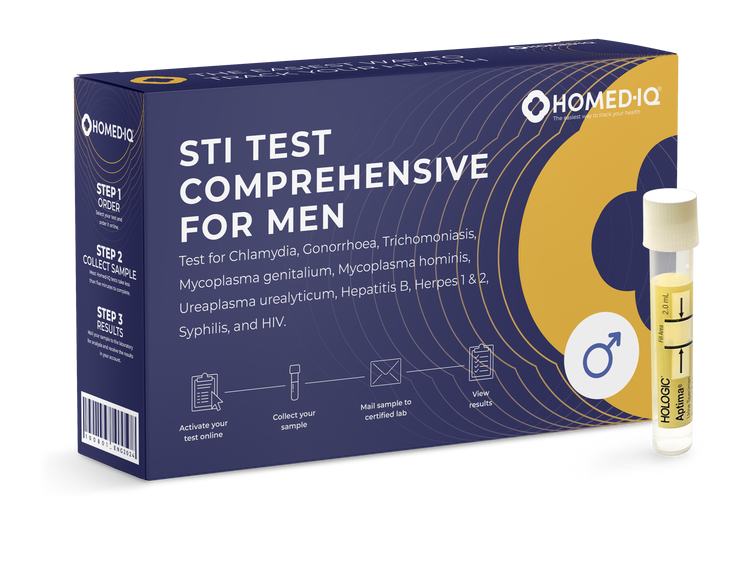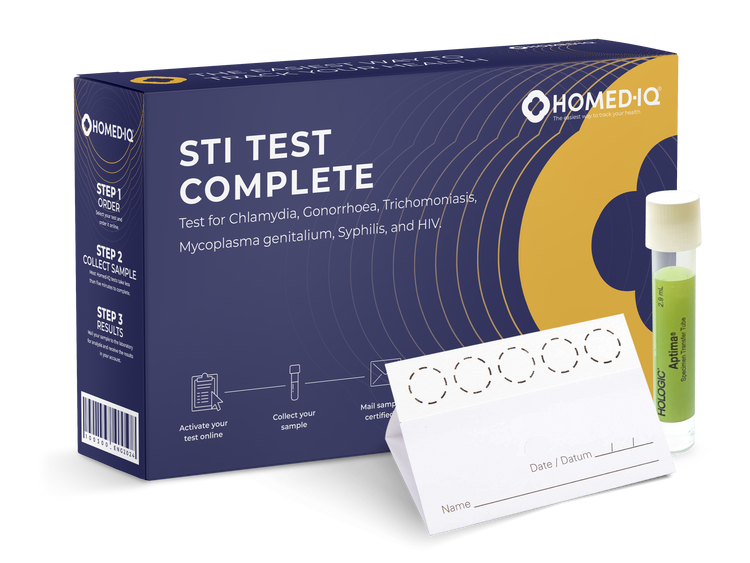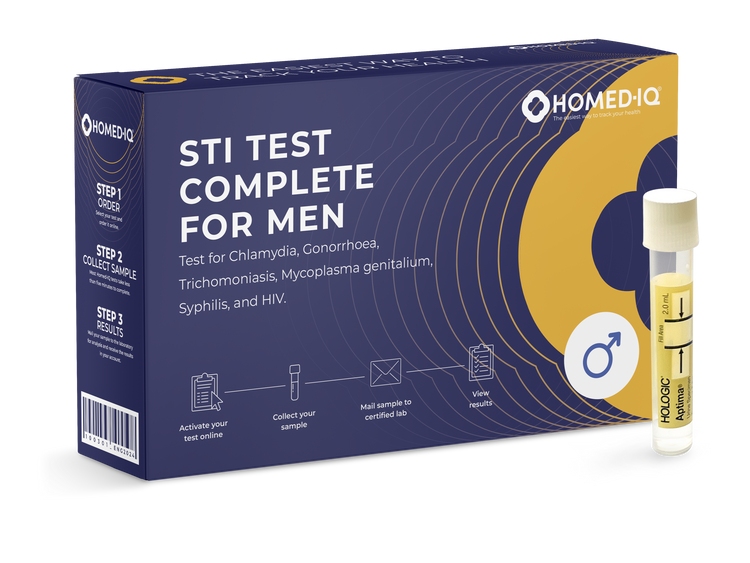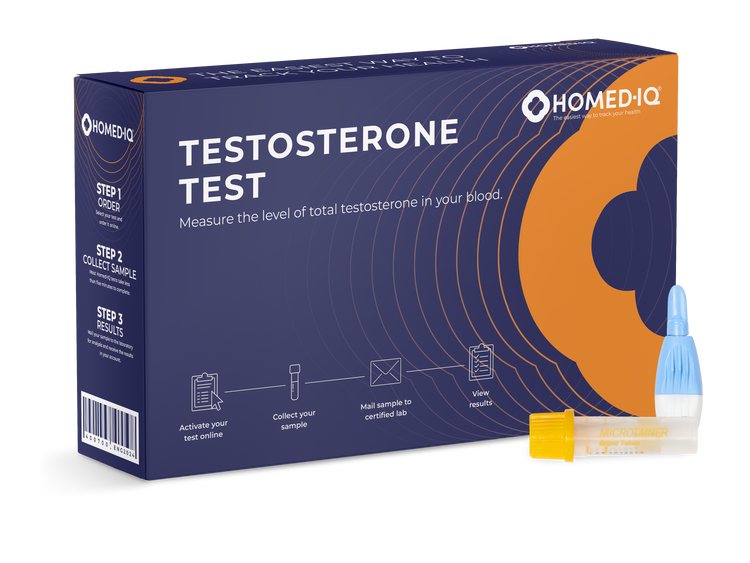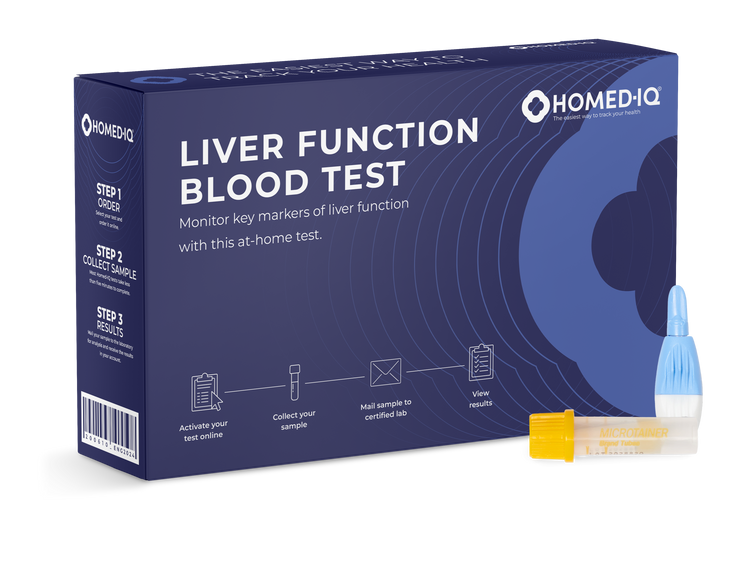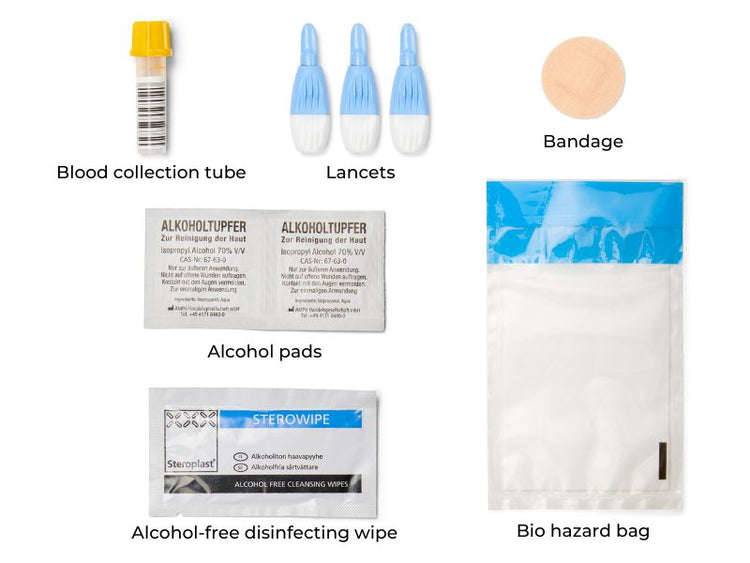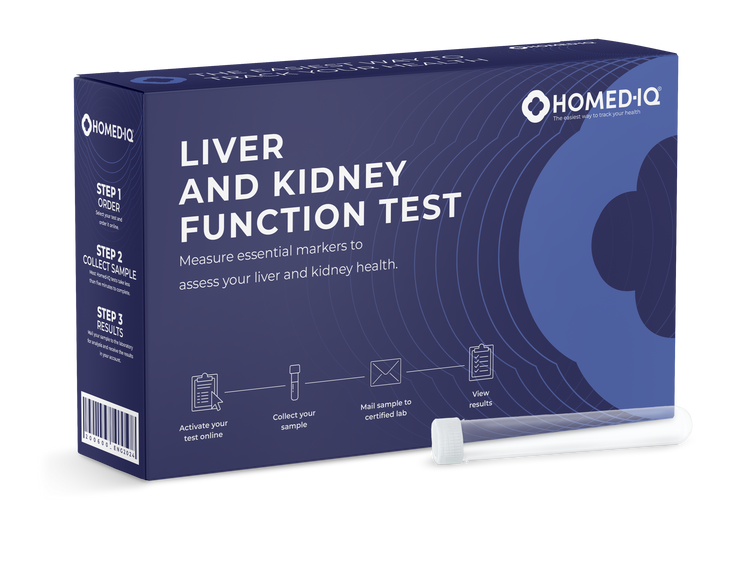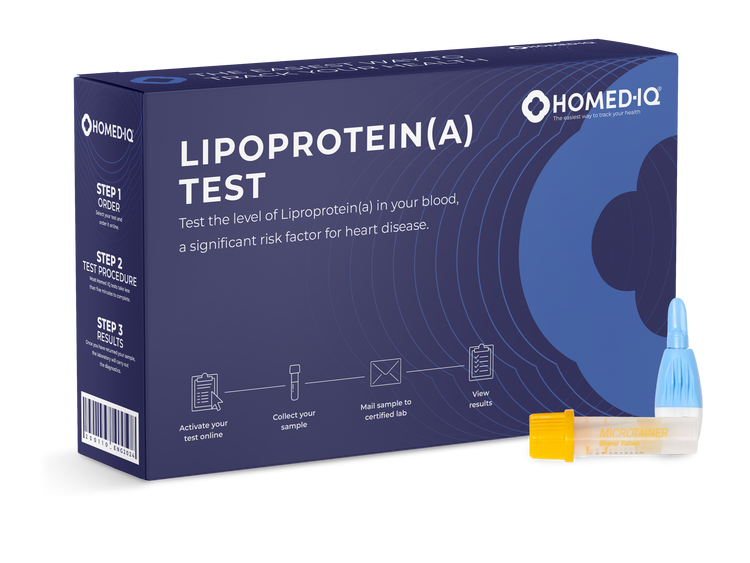Luteinizing Hormone (LH) Test
FREE SHIPPING
Luteinizing hormone (LH) plays an important role in regulating the menstrual cycle. Low LH can cause problems with fertility, while significantly elevated LH levels are common during and after menopause. Use this home hormone test to gain insight into your fertility or understand whether you might be in menopause.
Test mode:
Finger Prick test
When to test: It is important to collect the blood sample on Day 3 of your menstrual cycle to ensure accurate results. The third day of your menstrual cycle refers to the third day of blood flow during your period. This means you consume no food or drinks other than water. This test should not be used by women on hormonal birth control.
FAQs
I am on hormonal birth control (pill/ IUD/ Patch), can I still do this test?
How long do I have to wait after I have stopped taking hormonal birth control to test my hormones?
How can I test my fertility at home?
Can I just ask my doctor for this test?
How accurate are the results from Homed-IQ?
Is there a medical professional available to answer questions about my test result?
Can I share my results with my doctor?
Do I need to stay home to accept the delivery of my test kit?
How does it work?
-
![Woman in professional cozy kitchen with Homed-IQ test kit]() 1
1Order your test
Fast and discrete letterbox delivery
-
![]() 2
2Activate & take your sample
Video instructions included
-
![]() 3
3Laboratory analysis
ISO - Certified lab network
-
![]() 4
4Receive your results
Easy access through mobile
